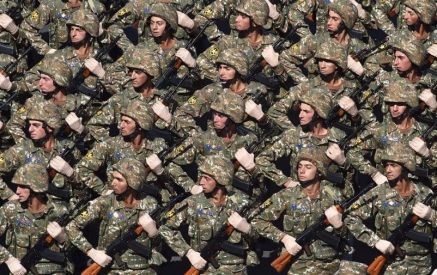To speak about the 20th anniversary of the army in an official, elevated tone and turn a blind eye to the drawbacks is not honest and fair. Today our society, I am convinced, is proud of our army and its history, on one hand, and is more demanding toward this institution, than any other one, on the other. Because, when a tax collector is corrupted, it is considered as a drawback of the given field, whereas when the commander is like that, it is perceived as not only a drawback, but also as a threat to our state security. When an ordinary, “civilian” oligarch exploits the population of his district, sometimes throwing them a few “charity” bones, people just hate such a “great guy,” when an oligarch with general’s shoulder straps does the same thing, his every step arouses innermost protest. When they conceal a murder in the civilian life, it is assessed as a crime of “cops” or prosecutors, whereas when it is done in the army, the mother of every serviceman is alarmed.
Thus, the standards that are used for the army are higher. It should be so – basically people want little from this country, first of all, more or less bearable life conditions. And the most important demand is the following – the guy who stands on the border of our state must feel safe from the rear, be protected from soldiers with criminal inclinations and “despotic” officers. And the 20-year glorious history of our army is the guarantee that it, being protected, is possible.
The chronology of the Armenian Army is represented in the newspapers these days. However, one thing is not so much talked about. Our army was built on the spirit of 1988, when everyone loved each other, when everyone was proud that he was Armenian, when everyone was convinced that a brilliant future awaited our nation. The army built on such foundation cannot lose the war, regardless of the size of armed forces and the power of armaments. We lack many things today, but the biggest of all those drawbacks is that we don’t have a common goal today. Or perhaps, there is such a goal, but we cannot define it.
ARAM ABRAHAMYAN























































